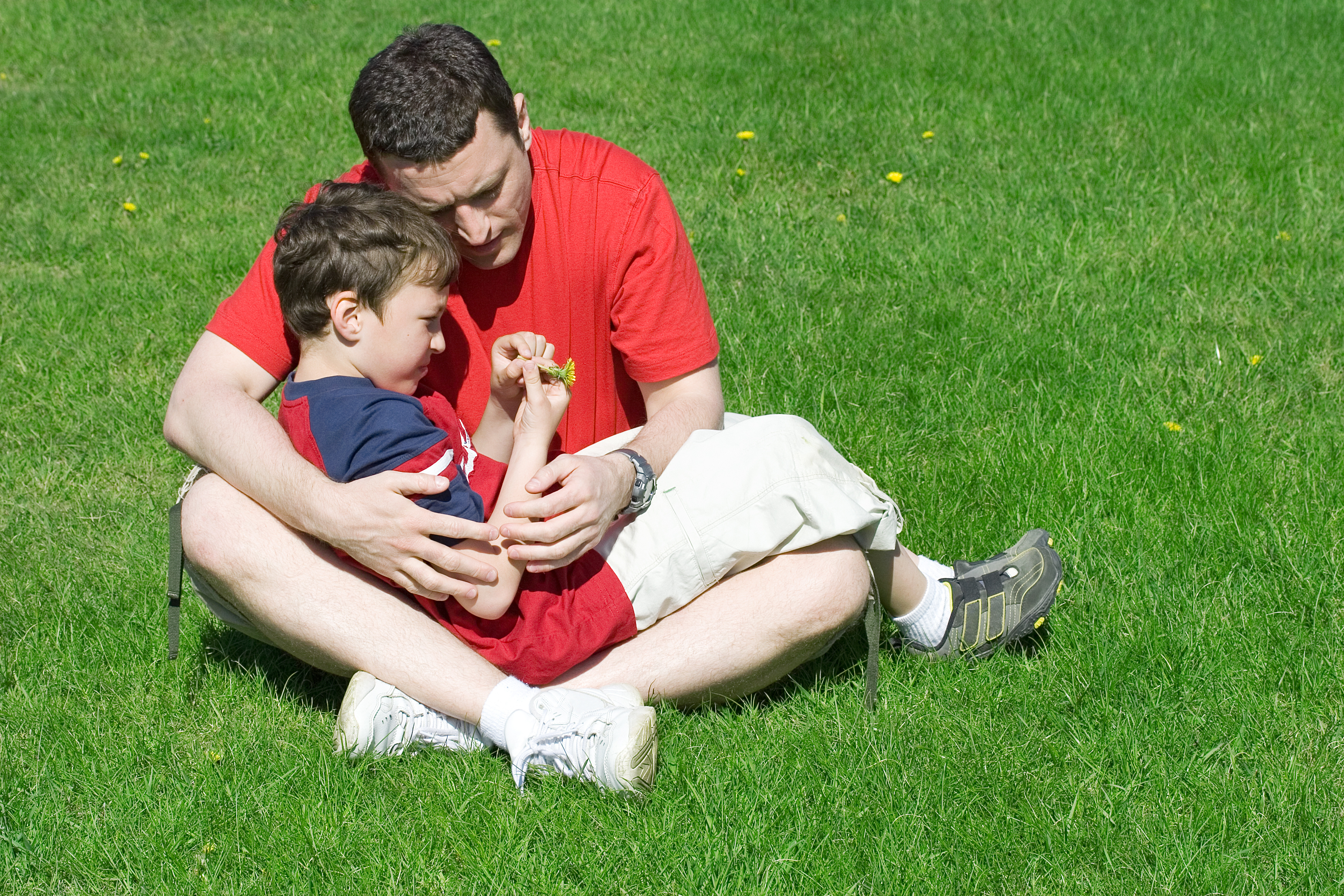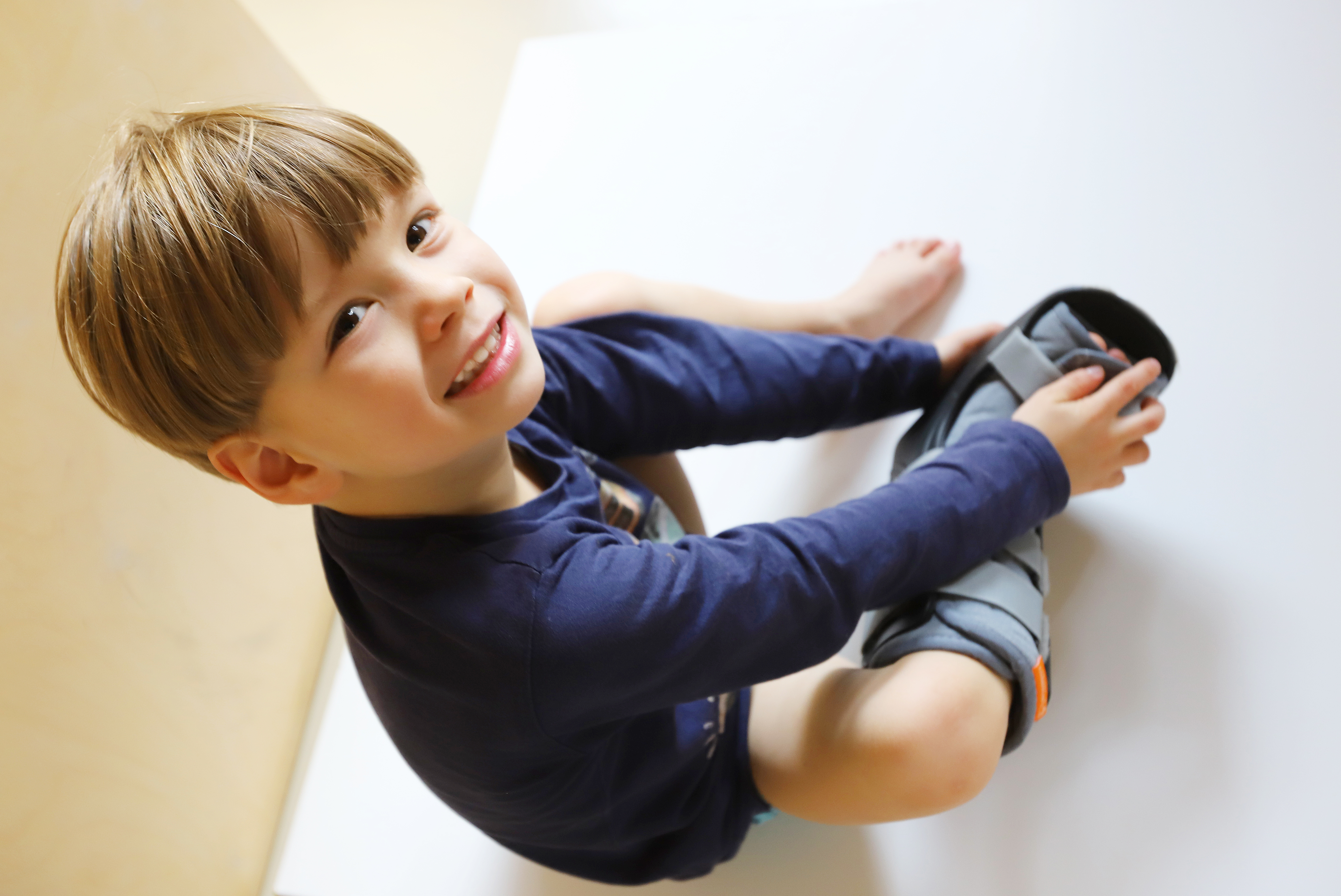Special Needs
Kids with “special” needs have extra needs, and require more of their parents. Luckily, the three most important tenets of peaceful parenting -- emotional regulation, connection, and coaching -- not only work with special needs kids, but are even MORE important in helping them trust, connect and self-regulate.
Start Here:
Does the Peaceful Parenting Approach Work with Differently Wired Kids?
Dear Dr. Laura,
Does this Peaceful Parenting approach work with a differently wired child, for instance ASD and sensory issues? The pediatricians, OTs, and specialists all seem to use rewards and punishments.
Resources for Parents of Kids Who Need More
Do you have a complex child? Parenting a child who is strong-willed, highly sensitive, neurodivergent, or facing other unique challenges requires an enhanced level of empathy and understanding from their parents.
Read MoreHelping Children Through Chronic Illness
Dr. Laura,
My heart is hurting for my little girl. She is 11 years old. About a year ago she was diagnosed with Juvenile Arthritis after many months of illness.
Even with treatment and medication, she still has flare ups and pain in her joints. The arthritis affects her hips, knees and elbow mostly. She also tires more easily than other children. Some weeks she feels okay and can participate in normal activities, but some days she can barely get out of bed or walk without assistance.
I really could use some advice with how to help her deal emotionally with her illness. She cries and screams that it is unfair that she has arthritis, has to take medicine every day, get shots every week and go to the doctor all the time. She keeps saying that she just wants to be a normal kid.
The medicine that she takes also contributes to her mood swings. She gets so angry and upset that we have a great deal of trouble calming her down. She lashes out at me and my husband and she is just so angry. Before getting sick she was the happiest, most cheerful child ever. She has told me that she hates being different and that none of the girls in her new class will play with her. She thinks that it is because she is limping from her hip hurting.
The other issue we are facing is if we should pull her from cheerleading. That is the one activity that she truly loves. She has been in a cheer program for 5 years - since before she ever was sick. She enjoys everything about cheerleading. When she is hurting, she still insists on going to practice even if she has to sit off to the side and just learn the cheers. Plus she has known the girls on her team since before she was sick, so they do not treat her any differently.
Her coaches are really understanding when she is not feeling well or in pain, but the program is getting more and more intense as she gets older. My husband feels like it is too much on her and we should pull her. I know that it might be too much for her right now, but she is miserable at school and mad at the world, how can I take away the one thing that she truly loves?
Thank you so much.
Can 12 Year Old with ADD Stay Home Alone?
Is it safe for us to allow our 12-yr old daughter with ADD to stay at home from 7-8:10 am when she walks to school 1 block away? I find that she has the time to get her chores done in the morning before she leaves but consistently things are not getting done.
Medicating "High Maintenance" Child?
Hi,
I will make this as short as possible, if I can.
I have a 6 year old son, who is having some extreme difficulties and we're having difficulties with him as well.
He has always been what I call a "high maintenance" child, but upon starting kindergarten last fall our problems just seemed to multiply. We were receiving notes weekly, along with calls from his teacher about the problems he was having.
Her biggest complaints were that he was disorganized (as in never having what he was supposed to have-- pencil, books, etc.) he was very nervous, and very talkative. Since we were having problems with him at home as well (although different issues, such as tantrums- which I dubbed meltdowns- and a complete disregard for others' feelings or property) we took him to his family doctor. Based on our description and his "symptoms" his doctor labeled him as ADHD and prescribed Strattera at the lowest dosage. Within a week on the Strattera he became extremely angry and aggressive, so he was taken off and we were given a referral for a psychiatrist.
The psychiatrist thought he exhibited too many ADD behaviors and wanted him on Concerta, again at the lowest dosage. With his first dose of Concerta he wound up in the ER because he was exhibiting many odd behaviors, such as facial tics, repetitive actions (he counted to 1,000 in the 15 minute drive from our house to the ER) as well as a highly elevated heart rate. The psychiatrist then concluded that if he had such reactions to both types of ADD/ADHD medications that he was early-onset bipolar. This was suggested because of the family history on my side (not me, but my mother and grandfather, aunts, etc.) having a history of drug and alcohol abuse.
At this point, we wanted a third opinion. The psychologist we took him to for that told us that it was all our parenting skills and had nothing to do with him. Needless to say, we left the office quite disgusted and never returned.
Our fourth opinion was from another psychologist who said he had PDD. We are at the end of our rope here trying to help our son, and wanted to know if you could perhaps walk through his symptoms with me and see if you can help us get things on the right path to a better diagnosis.
Thank You in advance,
Ashley
Is preschooler's odd behavior a sign of OCD?
Dear Dr. Laura,
My 3 and a half year old son has begun demonstrating some strange speech behavior. It started with "blowing". I should start by saying that he has lately become obsessive about not stepping on cracks (in sidewalks, on tile floors) and has consistently avoided doing this for about 3 months now.
About 1-2 months ago, he would "blow" when he stepped on a crack, saying this protected him from the "lasers" (the cracks). Then the blowing became a speech habit. He'll be speaking, will blow out twice, then continue his sentence. He now does this with tongue clicking too. He'll be in the middle of a sentence, will click his tongue a couple of times, then continue. He is otherwise in good health.
Should I be concerned?
Kindergartener with special needs
I have a 5 yr old who is starting kindergarten. Because of a stroke suffered as a baby he has right sided weakness and wears an AFO on his right leg and a brace on his right arm. He also sometimes drools out the right side of his mouth, but he's getting much better at catching that.
Just recently he's been worried that the kids are going to tease him when he goes to school because he'll be the only one with braces. In truth, his kindergarten will have quite a few special needs kids in it and they even have an occupational therapist on staff because of the integrated classes.
I'm just wondering what I can do to help him prepare emotionally. He will be caught in the middle because he isn't classified as special needs. He doesn't have an IEP or qualify for school based therapy services. He is very intelligent and can already read and do math beyond the Kindergarten level, but physically he falls way behind. I worry about his self esteem and want to do everything I can to help him get through school in an emotionally healthy way.
Today it got worse. They were playing a chasing game on the playground. The girls were chasing the boys. My husband asked "so did any of the girls catch you?" and Noah immediately went into a 25 minute meltdown because he realized that the girls caught him, but not the other boys. He was sobbing and crying in his meltdown way about how "I am the slowest runner and the girls caught me but Grant got away and that's not fair and I don't want to play with them ever again because I can't run as fast and they're mean!" Well, truthfully, he will play with them again and they're not mean and the next time everything will be fine, but I'm more worried about how episodes like this will add up over time to knock down his self esteem and affect the person that he becomes. THANKS! -- Mattie



.png?updated=1737143413)







